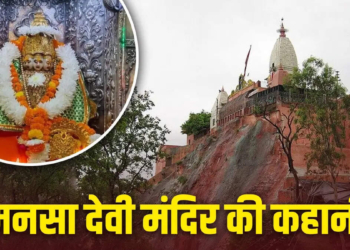New Delhi. Places of Worship Act 1991 is much discussed these days. The Places of Worship Act has come into discussion due to the cases filed in the courts and survey orders regarding many religious places including Gyanvapi Mosque. Many petitions have also been filed in the Supreme Court against the Places of Worship Act. Now a special bench of the Supreme Court will hear all these petitions. Supreme Court Chief Justice Sanjeev Khanna has formed a special bench of 3 judges for this. Apart from Chief Justice Sanjeev Khanna, this bench will have Justice Sanjay Kumar and Justice KV Vishnuvathana. The bench will hold the first hearing on the petitions filed against the Places of Worship Act on December 12 at 3.30 pm.
In the year 2021, the Supreme Court had sought response from the Central Government on the petitions filed against the Places of Worship Act. Till now the Center has not given any reply on this. Now after forming a special bench and fixing the date of hearing, it is believed that the Central Government will file a reply in the Supreme Court. Vishwabhadra priest priest federation, Dr. Subramaniam Swamy, lawyer Ashwini Upadhyay, Anil Kumar Tripathi and Karunesh Kumar Shukla have filed a petition in the Supreme Court against the Places of Worship Act, calling it illegal. At the same time, Jamiat Ulema-e-Hind has described the Places of Worship Act as necessary for communal harmony. Whereas, Gyanvapi Masjid Committee has said in the Supreme Court that cleverly prepared petitions have been filed against their mosque. For this reason he is also an important party.
The Places of Worship Act 1991 was passed by the Congress government of PV Narasimha Rao. The Ayodhya dispute itself was kept out of the scope under the Places of Worship Act. It says that the condition of the place of worship that existed on 15 August 1947 cannot be changed. ASI protected monuments were kept out of the scope of this Act. At the same time, former Chief Justice DY Chandrachud had said during the hearing of the Gyanvapi case that there is no restriction on knowing the form of a religious place under this law. Under this provision, ASI survey was conducted in Gyanvapi Mosque of Varanasi.










